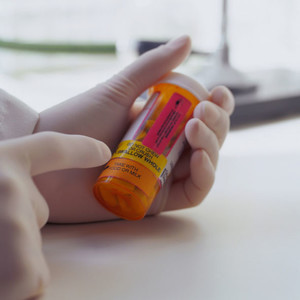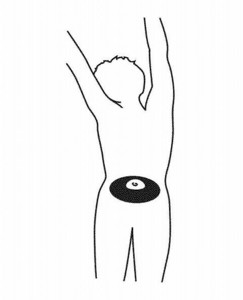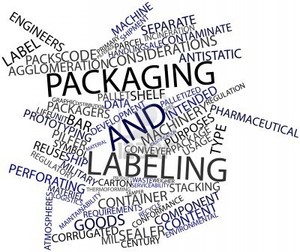In the face of increasing drug costs, substitution by generics is often used as a strategy by healthcare systems to rein in expenditure. However, patient misconceptions about generics can hinder such substitutions. Researchers Sanchez and Zurek discuss how pharmacists can improve this situation by educating patients on the use and safety of generics [1].
A significant proportion of the general public have negative perceptions about generics, according to different studies [2-4]. Common misconceptions about generics by patients include that they are less effective, take longer to start working, are not safe and are manufactured in substandard facilities.
The authors suggest that pharmacists should be familiar with the following common patient misconceptions about generics and should know how to address and dispel them.
Generic drugs are less effective and take longer to work
This misconception can be addressed, according to Sanchez and Zurek, by ‘educating patients about the concept of bioequivalence’. US Food and Drug Administration (FDA) bioequivalence requirements demand that the generic drug performs in the same way in the body and has the same active ingredient(s), strength, dosage form and route of administration as the brand-name reference drug. Although they can vary in excipients or inactive ingredients, the authors point out that ‘patients tend to be more comfortable with generic drugs when they know that the generic drug contains the same active ingredient(s) and thereby has the same risk-benefit profile as the brand-name medication’.
Generic drugs are not safe
The authors aim to dispel this misconception by pointing out that generics are manufactured according to the same standards of good manufacturing practice (GMP) as is required for brand-name drugs. They are reviewed by FDA in the same way as brand-name drugs, just under an abbreviated review process. This abbreviated review is possible for generics because generics makers are not required to repeat the research previously performed and reviewed for the brand-name drug.
Generic drugs are manufactured in substandard facilities
As mentioned above, FDA requires that generics are manufactured in accordance with current GMP and regulatory oversight of generics manufacturing is the same as for brand-name drugs.
Generic drug substitution
The authors suggest that pharmacists should ‘provide the patient with the option for substitution as early as possible in the filling process’. This, they say, ‘may help avoid confusion when the patient arrives to pick up the prescription and finds that it was filled with a generic substitute’. They add that ‘addressing this subject initially may help a patient feel more comfortable about receiving a generic drug’.
The authors conclude that ‘pharmacists are in a unique position to educate patients about the value, safety and efficacy of generic drugs’. Such education can, according to the authors, improve patients’ confidence in, and their willingness to take, generics’.
Conflict of interest
The authors of the research paper [1] did not provide any conflict of interest statement.
Editor’s comment
Readers interested to learn more about generics competition in the US are invited to visit www.gabi-journal.net to view the following manuscript published in GaBI Journal:
Promoting a competitive generics market in the US
GaBI Journal is indexed in Embase, Scopus, Thomson Reuters’ ESCI, and more.
Readers interested in contributing a research or perspective paper to GaBI Journal – an independent, peer reviewed academic journal – please send us your submission here.
Related articles
Doctors in the US should remember to prescribe generics
Physician perceptions of generic substitution
References
1. Sanchez CK, Zurek AM. Patient perceptions of generic drugs: dispelling misconceptions. US Pharm. 2016;41(6)(Generic Drugs suppl):36-41.
2. GaBI Online - Generics and Biosimilars Initiative. Generics perceptions in patients, pharmacists and doctors [www.gabionline.net]. Mol, Belgium: Pro Pharma Communications International; [cited 2016 Dec 2]. Available from: www.gabionline.net/Generics/Research/Generics-perceptions-in-patients-pharmacists-and-doctors
3. GaBI Online - Generics and Biosimilars Initiative. Patient adherence and generics [www.gabionline.net]. Mol, Belgium: Pro Pharma Communications International; [cited 2016 Dec 2]. Available from: www.gabionline.net/Generics/Research/Patient-adherence-and-generics
4. GaBI Online - Generics and Biosimilars Initiative. Patients’ perceptions of HIV generics in France [www.gabionline.net]. Mol, Belgium: Pro Pharma Communications International; [cited 2016 Dec 2]. Available from: www.gabionline.net/Generics/Research/Patients-perceptions-of-HIV-generics-in-France
Permission granted to reproduce for personal and non-commercial use only. All other reproduction, copy or reprinting of all or part of any ‘Content’ found on this website is strictly prohibited without the prior consent of the publisher. Contact the publisher to obtain permission before redistributing.
Copyright – Unless otherwise stated all contents of this website are © 2016 Pro Pharma Communications International. All Rights Reserved.








 0
0











Post your comment